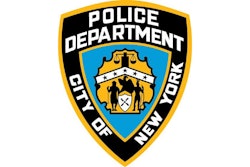The Philadelphia Fraternal Order of Police lost in its bid to defend officers who have visible tattoos that some might construe as offensive following an incident in which an officer was seen in a short-sleeve uniform shirt revealing a tattoo some argued was a Nazi symbol.
According to the Philadelphia Tribune, the Pennsylvania Labor Relations Board ruled that a public employer has "the managerial right to implement policies that promote the public's confidence and ensure integrity in the government.
The PLRB said, "The City has an interest in its officers, as representatives of the City, having an appearance of providing fair, balanced and non-prejudicial law enforcement. Offensive tattoos undermine the public perception of the integrity and credibility of the officer and the City thereby losing the public's trust."
It all started when former police officer Ian Hans Lichtermann's tattoo caused a public uproar when a citizen posted an image of it to social media.
The tattoo on Lichtermann's left forearm showed an eagle with its wings spread wide under the word "Fatherland."
The city then instituted the policy that "prohibits officers from having tattoos—on any parts of their bodies—that could be interpreted 'to advocate, promote, and support hatred and/or violence towards any person or group of persons based on race, national origin, gender, ethnicity, religion or sexual orientation' or 'as grossly indecent, lewd or sexual that shocks the moral sense because of their crude, vulgar, filthy or disgusting nature.'"
FOP President John McNesby said that the policy should have been subject to negotiation and that it was "overbroad" and "vague."











